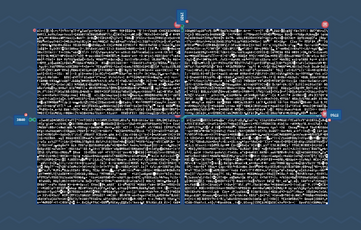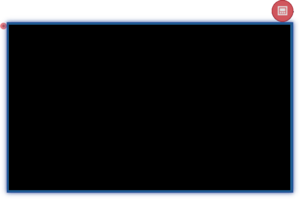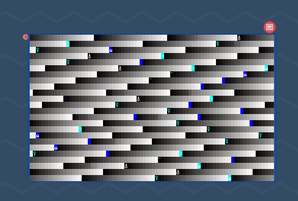(Changed the comment to be visible) |
(Removed colons) |
||
| Line 7: | Line 7: | ||
# '''Offset''' (32 bit) - This input dictates the address offset for the screen. It's useful when your video memory is allocated at some offset of PC's RAM and not in a separate RAM component.It's also useful when you want to put multiple Console screens together to achieve bigger resolutions. | # '''Offset''' (32 bit) - This input dictates the address offset for the screen. It's useful when your video memory is allocated at some offset of PC's RAM and not in a separate RAM component.It's also useful when you want to put multiple Console screens together to achieve bigger resolutions. | ||
=== Working with Console | === Working with Console === | ||
Firstly, connect a [[Ram|RAM]] component to the Console using the [[Link Components]] button on the right-top side. | Firstly, connect a [[Ram|RAM]] component to the Console using the [[Link Components]] button on the right-top side. | ||
| Line 13: | Line 13: | ||
[[File:Component Console Color Mode.png|thumb|298x298px|Console (Color Mode)]] | [[File:Component Console Color Mode.png|thumb|298x298px|Console (Color Mode)]] | ||
==== Normal Mode | ==== Normal Mode ==== | ||
In this mode, every byte of RAM is representing a character defined by the [[Code Page]] | In this mode, every byte of RAM is representing a character defined by the [[Code Page]] | ||
==== Color Mode | ==== Color Mode ==== | ||
In this mode, each character takes 7 bytes. (it's 8 byte aligned for convenience) | In this mode, each character takes 7 bytes. (it's 8 byte aligned for convenience) | ||
Revision as of 21:35, 18 March 2024
Console - is a 80x24 text display.


Inputs:
- Offset (32 bit) - This input dictates the address offset for the screen. It's useful when your video memory is allocated at some offset of PC's RAM and not in a separate RAM component.It's also useful when you want to put multiple Console screens together to achieve bigger resolutions.
Working with Console
Firstly, connect a RAM component to the Console using the Link Components button on the right-top side.
Then, you need to choose the display mode:

Normal Mode
In this mode, every byte of RAM is representing a character defined by the Code Page
Color Mode
In this mode, each character takes 7 bytes. (it's 8 byte aligned for convenience)
The first byte is the same as in Normal Mode.
Next 3 bytes represent the character color (in "RRRRRRRR GGGGGGGG BBBBBBBB" format).
And the last 3 bytes represent the character's background color (same format).
Note: If you're using 64 bit cells for your RAM, then the lowest byte will be the character and highest the blue component of background.